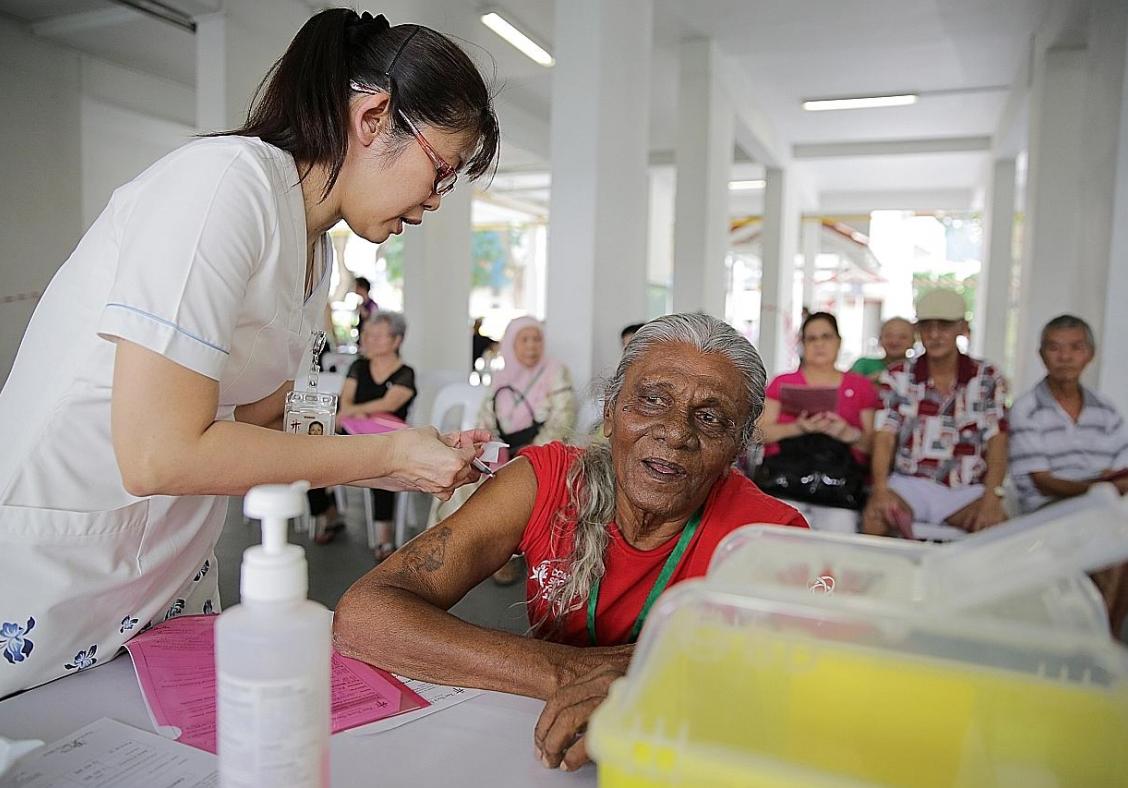Vaccination can prevent pneumonia
Pneumonia second most common cause of death here
It starts out with symptoms such as cough, fever, body ache and green sputum. But if taken lightly, it could turn life-threatening.
Pneumonia is a lung infection that can be caused by inhaling a huge dose of germs.
Every year, close to one in five people here lose their lives to pneumonia, making it the second most common cause of death after cancer. It is also the fourth most common reason for hospitalisation here.
The condition's prevalence extends globally, with community-acquired pneumonia being the most common.
But the silent killer is actually vaccine-preventable, said Associate Professor Philip Eng, a senior consultant respiratory physician at Mount Elizabeth Hospital.
"Of all the germs that cause pneumonia, vaccination is available for the flu and pneumococcus," he said.
Dismissing the misconception that a pneumococcal vaccination is ineffective, Assoc Prof Eng said the vaccination is in fact recommended for those who are above 65 years old.
Those who are below 65 but have co-morbidities such as diabetes, kidney failure, cancer, HIV, chronic obstructive pulmonary disease or asthma are also encouraged to go for a pneumococcal jab.
Severe side effects are relatively uncommon - lower than 5 per cent, he added.
What causes pneumonia?
Common germs include the flu virus, the rhinovirus and a bacteria called streptococcus pneumoniae.
The types of organisms that cause a person to succumb to pneumonia depends, to a large extent, on the type of host.
Generally, previously well people in the community do not succumb to pneumonia due to fungi. That usually causes pneumonia in people who have impaired immunity, such as those with Aids, cancer or are undergoing chemotherapy.
What are some symptoms of pneumonia?
High fever, cough, purulent (containing pus) sputum, shortness of breath or chest pain.
Who is at risk?
Anyone may develop pneumonia but this is particularly common in the elderly and children.
How can one prevent pneumonia?
Aside from vaccinations, common-sense measures are also important. This includes frequent handwashing with soap and water, and avoiding crowded places. People who are unwell with fever, cough or runny nose should stay at home and not go to school or work.
If they have to go out, they should wear a mask and cough or sneeze into tissue paper.
How do you treat pneumonia?
Patients are best treated with antibiotics if it is due to bacteria and antivirals if it is due to influenza. If the condition is severe, or if the patient is either elderly, very young or has many co-morbid conditions, they should be treated in hospital.
Get The New Paper on your phone with the free TNP app. Download from the Apple App Store or Google Play Store now




